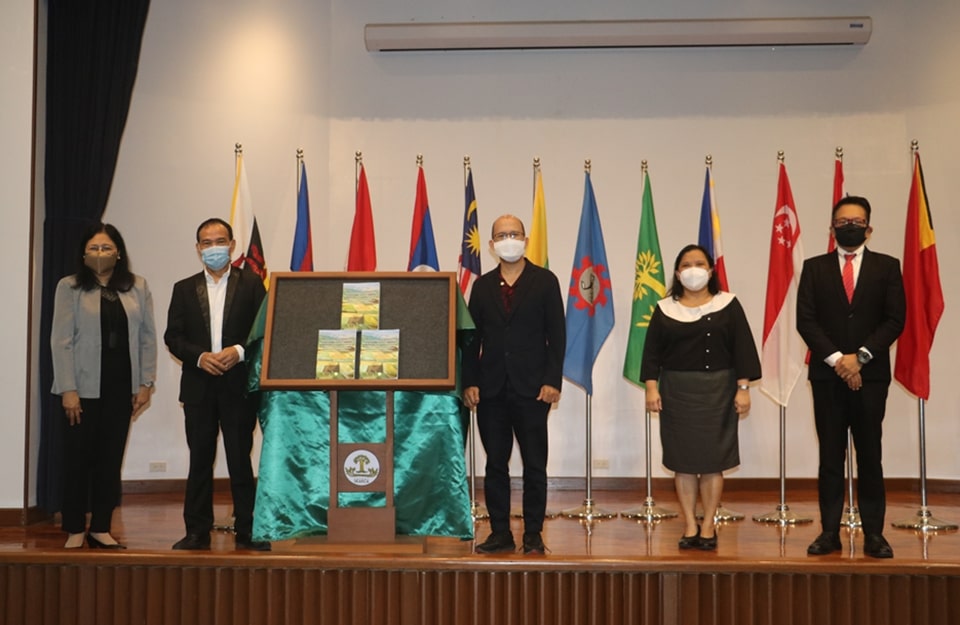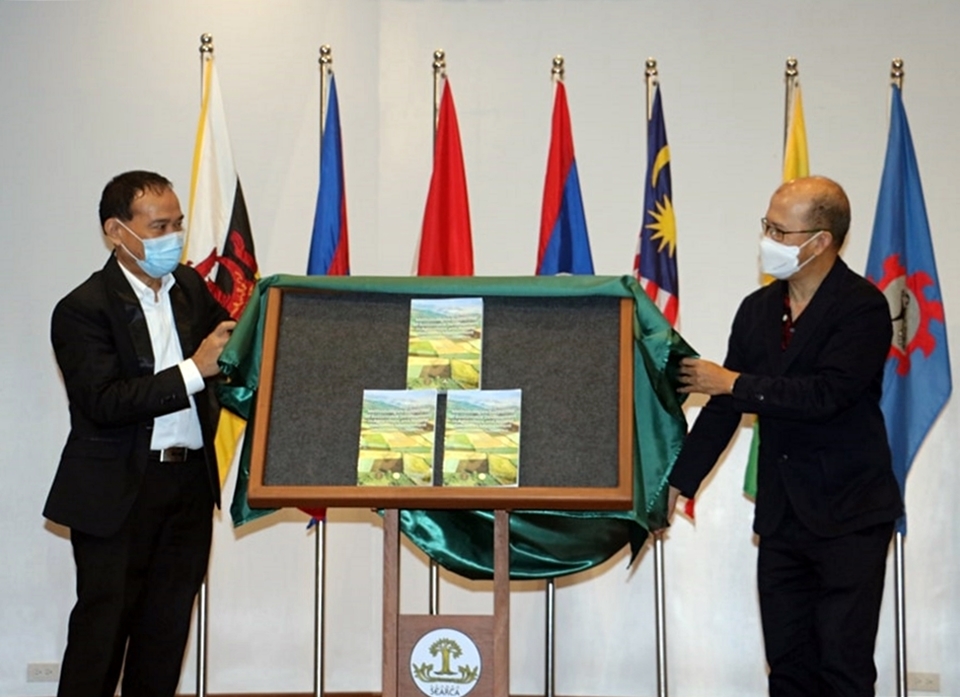The Regional SEARCA Alumni Association (RSAA) virtually launched its book titled Methodologies Supportive of Sustainable Development in Agriculture and Natural Resources Management: Selected Cases in Southeast Asia, its first collaborative publication project among scholars across Southeast Asia, with support from SEARCA and the University of the Philippines Los Baños (UPLB), as well as other academic institutions in the region with which the authors are affiliated.
The book project is the brainchild of its eventual editor, Dr. Inocencio Buot Jr. of UPLB, describing it as “a unique compendium, a scholarly account of peer reviewed, science-based, and replicable methodologies in Southeast Asia.” He further underscored these methodologies as “conceptualized, or modified, and tested by the SEARCA alumni-authors themselves.”
Authored by 30 of the scholarship alumni and research grantees of SEARCA’s 54-year graduate scholarship program, 13 chapters of the book present research and development breakthroughs in agriculture and natural resources management in Indonesia, Lao PDR, the Philippines, Thailand, and Vietnam. Methodologies related to sustainable development in agriculture management consists of six chapters, while diverse topics on natural resources management are covered in seven chapters.
Dr. Glenn B. Gregorio, SEARCA Director, emphasized that the book is “just the beginning of how SEARCA forwards its 11th five-year plan dubbed ATTAIN (accelerating transformation through agriculture innovation).” Dr. Gregorio considers the book as an example of SEARCA’s tenet in “giving value to unity amidst diversity, being a repository of the collective knowledge, information, and experiences that would enable future scholars to be inspired and motivated.”
Dr. Maria Cristeta N. Cuaresma, who heads SEARCA’s Education and Collective Learning Department, reiterated the book editor’s assertion and another alumnus-author's that research should not only end as published knowledge. “We need to re-examine the academic research cycle that usually ends up in publication and determine its impacts on national economic development,” underscores Dr. Cuaresma.
One of the chapter authors, Dr. Romeo Gomez, who is now the Vice President for Research and Extension at the Benguet State University in the Philippines, describes the book as unique and timely, more so during this time of pandemic when food security is doubly important. Dr. Cuaresma added that the book is “forward-looking, as it underscores helping to monitor ecosystems and community resilience or bouncing back from disasters or any disturbances causing drastic changes and disruption of processes, much like the current pandemic.”
The other authors who shared their experiences in contributing their research results as chapters of the book profusely thanked SEARCA for giving them an opportunity of a lifetime for higher education and the continuing support to improve their competence and that of their institutions’. Dr. Nguyen Thi Huyen of the Nong Lam University in Vietnam commended SEARCA’s scholarship and various programs that provide opportunities for young researchers like her when she availed of the scholarship to pursue her doctorate degree in the Philippines.
RSAA’s president, Dr. Josefina Dizon of the UPLB, mentioned that the association is gearing up for another collaborative book project, which will anchor on SEARCA’s sustainable agricultural and rural development focus. Dr. Gregorio responded with full support to future publication endeavors of SEARCA’s alumni, citing their important role in extending the center’s mandate of empowering the next generation of agriculture graduates by setting a good example.
SEARCA’s graduate scholarship program started in 1967 and since then has granted 1,851 scholarships to nationals of the 11 Southeast Asian nations. A total of 1,568 have received their graduate degrees as of 2020. SEARCA’s 11th five-year plan aims to develop a new breed of agriculture leaders and professionals, embodying mindset transitions, agents of change, and thought leaders who are needed to transform the landscape of agriculture and rural development in the region. This is SEARCA’ contribution to the global sustainable development goals, particularly on zero hunger, quality education, industry innovation and infrastructure, climate action, and partnerships for goals.

RSAA executive director Dr. Ricardo Bagarinao of the UP Open University says that the RSAA consists of all SEARCA graduate scholarship alumni, “a valuable network that works toward sustainable agricultural and rural development through conferences, seminars, and collaborative research projects that bring together experts in the region.” The association was organized through a series of in-country planning workshops to embody the ideals and aspirations of SEARCA through enhancing the skills of the region’s human resources in agriculture, natural resources, and related fields. It is also in line with SEARCA’s function of strengthening the catalyst’s role in agriculture and rural development of the region, and in planning and implementing projects for countries represented in the organization.
Regularly check the SEARCA website and like and follow SEARCA’s facebook page to be notified of calls for application to joint scholarships and various grants that the center offers to Southeast Asian nationals.
The electronic copy of the book is available for free download at searca.org while print copies are for sale through .
